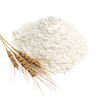Sign In Chef

By using our free meal planner (and the rest of spoonacular.com) you have to agree that you and only you are responsible for anything that happens to you because of something you have read on this site or have bought/cooked/eaten because of this site. After all, the only person who controls what you put in your mouth is you, right?
Spoonacular is a recipe search engine that sources recipes from across the web. We do our best to find recipes suitable for many diets — whether vegetarian, vegan, gluten free, dairy free, etc. — but we cannot guarantee that a recipe's ingredients are safe for your diet. Always read ingredient lists from the original source (follow the link from the "Instructions" field) in case an ingredient has been incorrectly extracted from the original source or has been labeled incorrectly in any way. Moreover, it is important that you always read the labels on every product you buy to see if the product could cause an allergic reaction or if it conflicts with your personal or religious beliefs. If you are still not sure after reading the label, contact the manufacturer.
We also attempt to estimate the cost and calculate the nutritional information for the recipes found on our site. Again, we cannot guarantee the accuracy of this information. Additionally, our nutrition visualizer that suggests that you limit sodium, sugar, etc., and get enough protein, vitamins, and minerals is not intended as medical advice. Similarly, our health tips are based on articles we have read from various sources across the web, and are not based on any medical training. The team behind spoonacular does not possess any medical qualifications and the information may be found to be incorrect or out of date based on future research. If you need help planning your diet or determining which foods (and recipes) are safe for you, contact a registered dietitian, allergist, or another medical professional.
Spoonacular is not responsible for any adverse effects or damages that occur because of your use of the website or any information it provides (e.g. after cooking/consuming a recipe on spoonacular.com or on any of the sites we link to, after reading information from articles or shared via social media, etc.)
×$0.62 per serving

1 likes

Ready in 1 hour and 30 minutes

Spoonacular Score: 63%
Pierogies with Caramelized Onion, Cabbage, and Potato is an Eastern European hor d'oeuvre. One portion of this dish contains approximately 9g of protein, 16g of fat, and a total of 447 calories. This dairy free recipe serves 8 and costs 62 cents per serving. This recipe from Foodista has 1 fans. From preparation to the plate, this recipe takes around 1 hour and 30 minutes. Head to the store and pick up potatoes, earth balance margarine, mustard, and a few other things to make it today. Overall, this recipe earns a solid spoonacular score of 79%. If you like this recipe, take a look at these similar recipes: Pierogies with Caramelized Onion, Cabbage, and Potato, Potato Pierogies With Cabbage and Bacon, and Caramelized Cabbage and Onion Colcannon.
Sparkling Wine and Sparkling rosé are my top picks for Pierogies. If you're serving a selection of appetizers, you can't go wrong with these. Both are very food friendly and complement a variety of flavors. The Barefoot Bubbly Pink Moscato with a 4.9 out of 5 star rating seems like a good match. It costs about 15 dollars per bottle.
 Barefoot Bubbly Pink Moscato is sweet & juicy with explosive aromas and flavors. Best served chilled (36-40 degrees F), this bubbly has aromas and flavors of jasmine and Mandarin orange complemented by red raspberry, strawberry and pomegranate. Enjoy the creamy and juicy finish!
Barefoot Bubbly Pink Moscato is sweet & juicy with explosive aromas and flavors. Best served chilled (36-40 degrees F), this bubbly has aromas and flavors of jasmine and Mandarin orange complemented by red raspberry, strawberry and pomegranate. Enjoy the creamy and juicy finish!
» Get this wine on Amazon.com
































For the dough:
For the filling:
Read the detailed instructions on Foodista.com – The Cooking Encyclopedia Everyone Can Edit